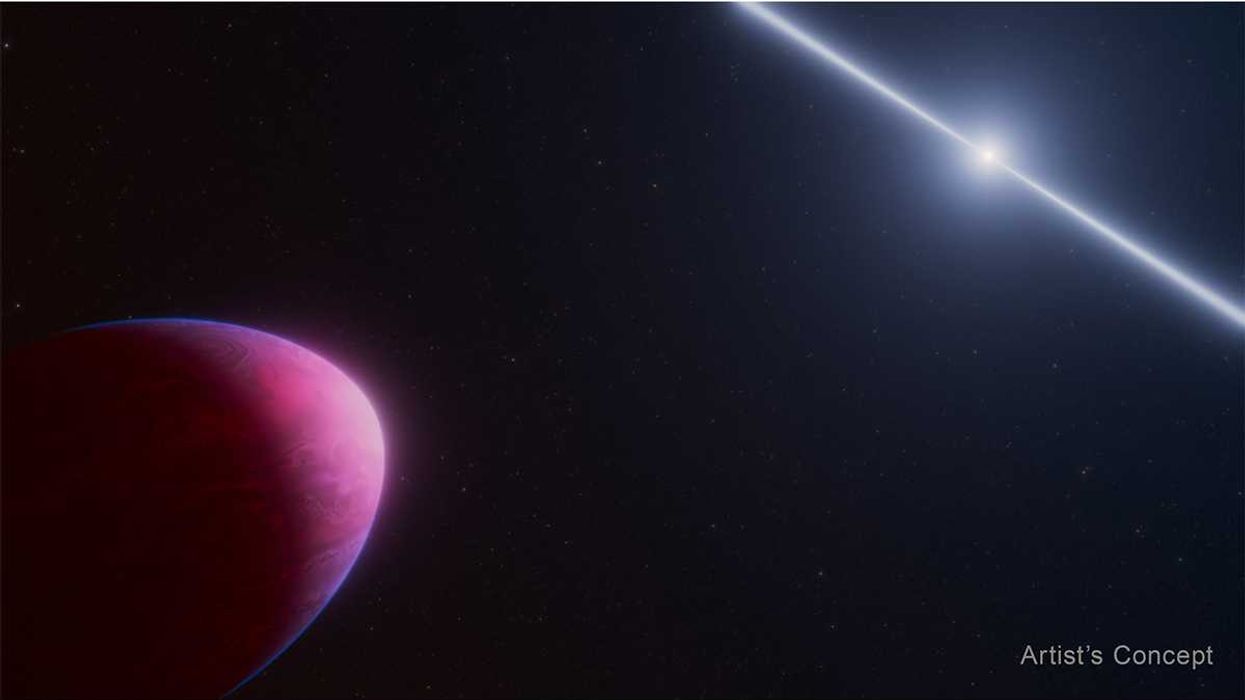 We're not entirely sure, it turns out. For a long time now, climatologists have believed that the contrails–those white vapor trails left by airplanes you see criss-crossing the sky–had a net warming effect.They believed that the amount of heat the makeshift clouds trapped down towards the Earth's surface was greater than the amount of warming they prevented by blocking out the sun's rays. But one researcher looked at data collected in the three days after September 11th, when the skies above the U.S. were empty, and found that the average high temperatures during those days were higher than normal.The only problem is that those three days were also abnormally clear and cloud-free, so it might be natural variation at play. That there is some warming or cooling impact is certain; we need some more research to determine which it is.Image courtesy of Wikimedia (cc) and NASAThis post originally appeared on www.refresheverything.com, as part of GOOD's collaboration with the Pepsi Refresh Project, a catalyst for world-changing ideas. Find out more about the Refresh campaign, or to submit your own idea today.
We're not entirely sure, it turns out. For a long time now, climatologists have believed that the contrails–those white vapor trails left by airplanes you see criss-crossing the sky–had a net warming effect.They believed that the amount of heat the makeshift clouds trapped down towards the Earth's surface was greater than the amount of warming they prevented by blocking out the sun's rays. But one researcher looked at data collected in the three days after September 11th, when the skies above the U.S. were empty, and found that the average high temperatures during those days were higher than normal.The only problem is that those three days were also abnormally clear and cloud-free, so it might be natural variation at play. That there is some warming or cooling impact is certain; we need some more research to determine which it is.Image courtesy of Wikimedia (cc) and NASAThis post originally appeared on www.refresheverything.com, as part of GOOD's collaboration with the Pepsi Refresh Project, a catalyst for world-changing ideas. Find out more about the Refresh campaign, or to submit your own idea today.Do Airplane Contrails Heat or Cool the Planet?
We're not entirely sure, it turns out. For a long time now, climatologists have believed that the contrails–those white vapor trails left by...
By Ben JerveyFeb 05, 2010
Ben Jervey
Ben is a writer and editor covering climate change, energy, and environment, and is currently the Climate and Energy Media Fellow at Vermont Law School. He was the original Environment Editor at GOOD Magazine and his work has appeared regularly in National Geographic News, Grist, DeSmogBlog, and OnEarth. He recently worked with the non-profit Focus the Nation to publish an Energy 101 primer. When living in New York City, he wrote a book, The Big Green Apple, on how to live a lower impact life in the city. A bicycle enthusiast, Ben has ridden across the United States and through much of Europe.
















 Otis knew before they did.
Otis knew before they did.